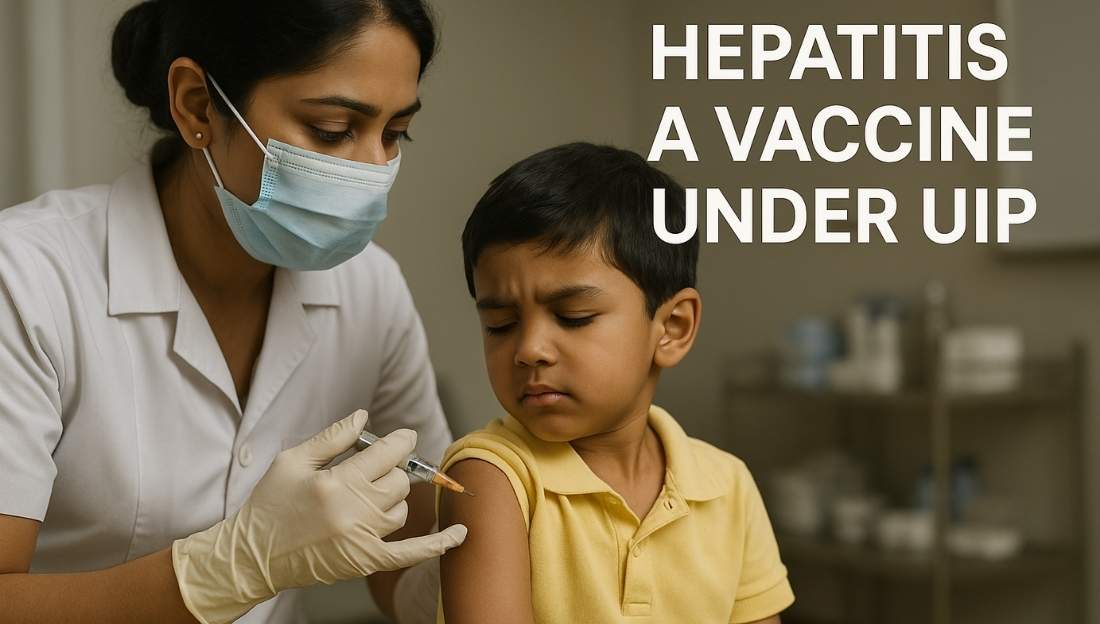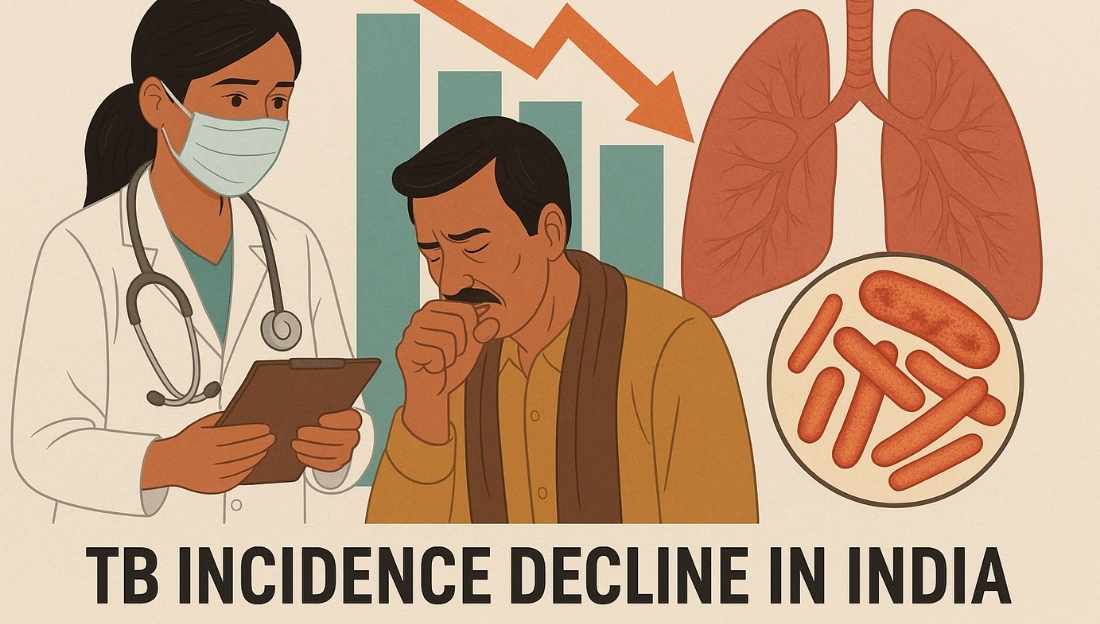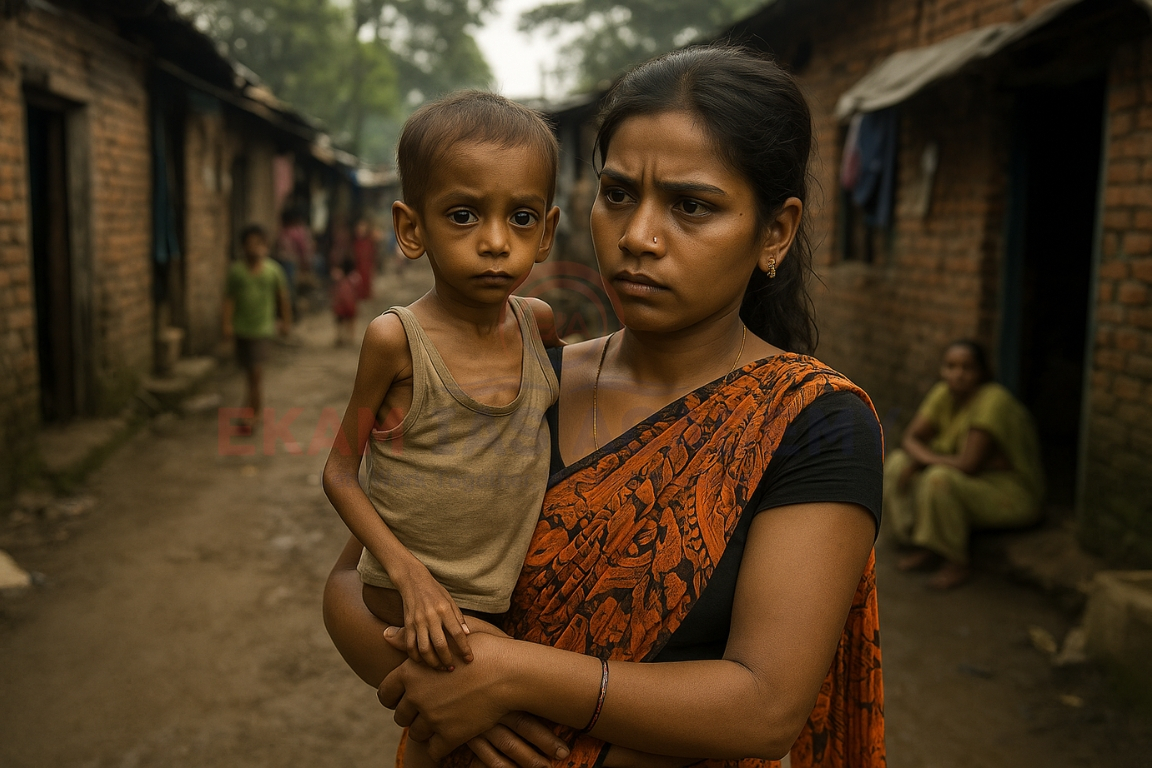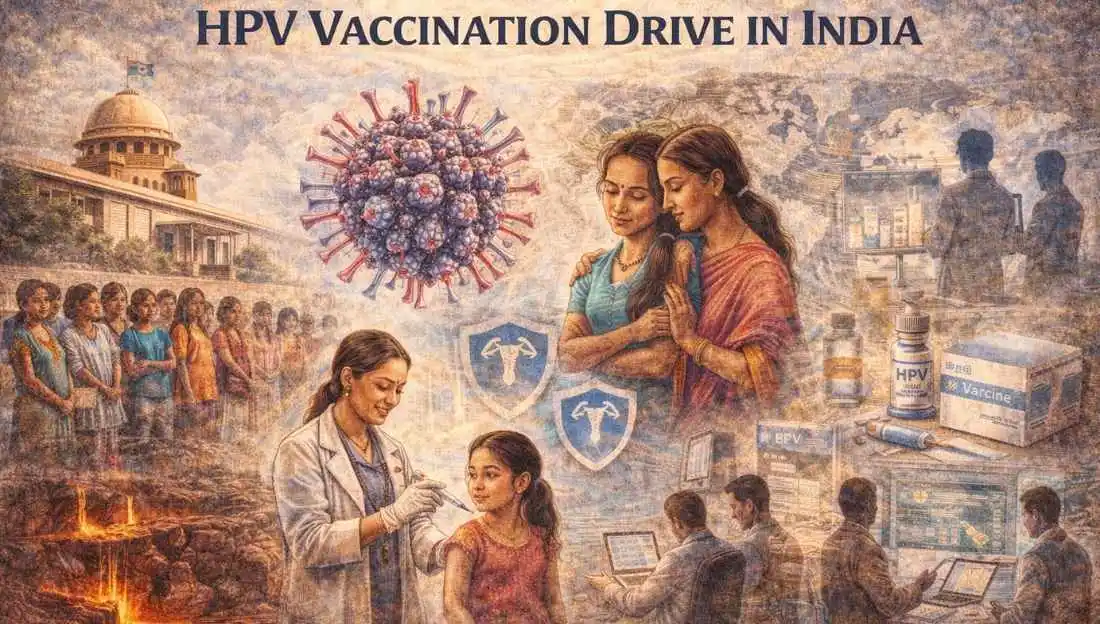India is reassessing vaccine priorities under the Universal Immunisation Programme (UIP), especially as the government considers adding the Typhoid Conjugate Vaccine (TCV).
About Hepatitis A
- A viral infection triggered by the Hepatitis A Virus (HAV), spreading mainly through contaminated food, water, or close contact with infected individuals.
- Produces acute liver inflammation, leading to jaundice, fever, fatigue, vomiting, and abdominal discomfort.
- No antiviral cure exists; the disease usually resolves on its own within six months, requiring only supportive care.
- Offers 90–95% protection, provides immunity for 15–20 years or often lifelong, and prevents symptomatic disease.
- Better sanitation has reduced childhood exposure, but this has pushed infections into adulthood—where disease severity is significantly higher.
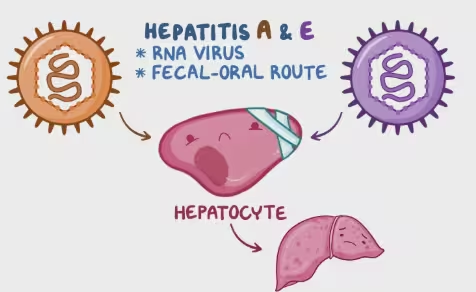
What Is the Universal Immunisation Programme (UIP)?
- 1985; later integrated with the Child Survival and Safe Motherhood Programme (1992) and the National Rural Health Mission (2005).
- Coverage: Supplies free vaccines against 12 diseases—nine across India (DPT, Polio, Measles, Rubella, TB, Hepatitis B, Hib) and three in specific states (Rotavirus, JE, Pneumococcal).
- Contribution: Crucial in polio eradication, reducing measles mortality, and improving overall child survival.
Why Hepatitis A Merits Inclusion in UIP
- Higher Severity in Adults: Earlier, most Indians were naturally exposed in childhood, but falling transmission has led to rising adult infections, which are far more likely to cause acute liver failure.
- Increasing Outbreaks: States such as Kerala, Maharashtra, Delhi, and Uttar Pradesh have witnessed repeated clusters, indicating a growing public-health risk.
- Declining Immunity Levels: Urban seroprevalence has dropped from about 90% to below 60%, leaving millions vulnerable.
- Availability of an Affordable Indian Vaccine: The indigenous Biovac-A is safe, low-cost, and requires only one dose, making national rollout feasible.
- No Risk of Antimicrobial Resistance: As a viral disease treated without antibiotics, Hepatitis A avoids the risk of drug resistance—a major concern with other infections.
HEPATITIS
- Hepatitis refers to liver inflammation caused by viruses, alcohol, drugs, or autoimmune conditions.
- Viral forms:
- Hepatitis A: Fecal–oral; acute; vaccine available.
- Hepatitis B: Blood/body fluids; chronic potential; vaccine available.
- Hepatitis C: Blood transmission; often chronic; no vaccine.
- Hepatitis E: Fecal–oral; usually acute.
This topic is available in detail on our main website.


